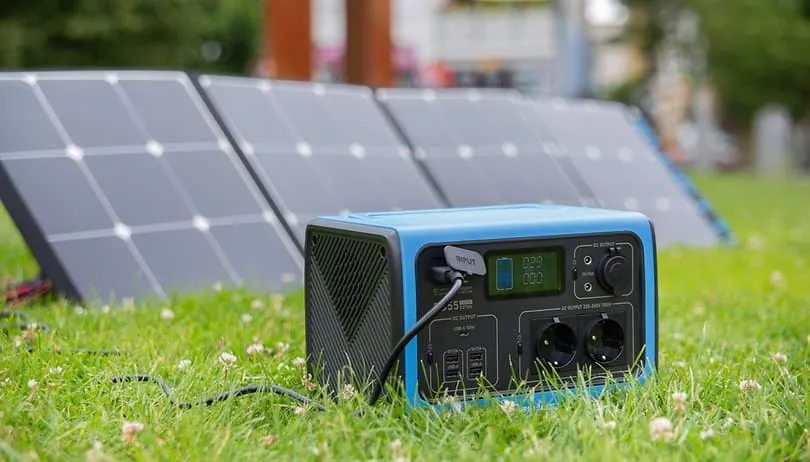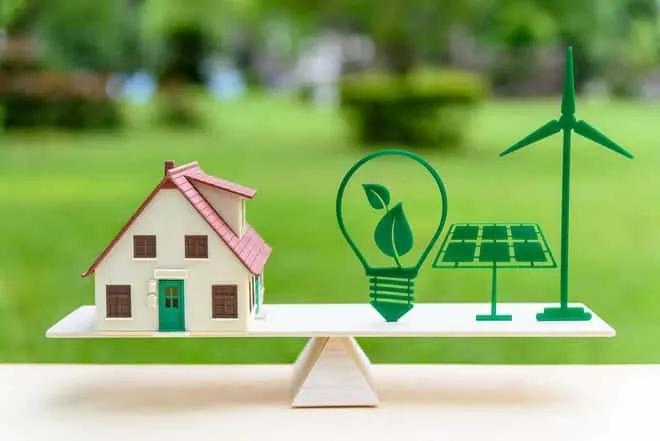How to Choose the Best Solar Generator for Home Use
Solar generators are an excellent source of backup power, as they can be used to power a wide range of household appliances during power outages and for off-grid living. Compared to traditional gas generators, which are noisy and emit harmful gases, solar generators are quiet and use renewable energy sources, thereby reducing the household carbon footprint and not contributing to climate change.
However, choosing the best solar generator for your home can be one of the most challenging tasks. There are several factors to consider if you want to power multiple devices in your home. In the following article, we will examine some key factors that must be taken into account when selecting the best solar generator for your home.

Parts of a Solar Generator
A solar generator is essentially an electric generator that relies on solar panels to collect and store electricity. It consists of four main parts:
Important Considerations When Buying a Solar Generator
Like any other generator, you must ensure that the solar generator you choose is capable of meeting your power needs and powering your devices. Here are some key metrics to consider when selecting the best solar generator for your home.
Running Wattage
Running wattage refers to the generator's rated power, i.e., continuous power output. The best solar generator for your home should be able to produce enough running watts to effortlessly power all your devices. You can calculate the required continuous wattage by adding up the individual energy requirements of household appliances and adjusting for efficiency losses. Ideally, the generator's rated running wattage should be approximately twice that of the inverter's continuous output.
Generator Capacity
Measured in watt-hours (Wh), generator capacity indicates how long you can use devices from the generator. A watt-hour means continuous power output that a fully charged battery can provide over 60 minutes. For example, a 500 Wh generator could power a 20-watt lamp for 25 hours or two devices at 50 watts each for 5 hours, and so on. Since these calculations are made under standard conditions, a reasonable approach is to leave some margin since you may not extract all the power due to varying conditions.
Peak Wattage
Starting wattage, or peak wattage, is a measurement of short-term power needed to start a device and bring it into operational mode. Therefore, this value will be higher than running wattage, and you must pay special attention to peak wattage if you plan to start devices with motors such as refrigerators and fans. Peak wattage is the power required to start these devices, so you should check them individually and ensure that your generator can meet this value.
Recharge Time
As the name implies, recharge time refers to how long it takes to fully charge a depleted generator battery. Recharge times are usually stated in the manufacturer's documentation and indicate estimated charging time based on solar panel input rate and battery capacity. If you live in an area with the most sunshine hours, i.e., time during which sunlight delivers 1000 watts per square meter of energy, you can opt for a longer recharge time. Overcast weather will affect charging times, so it's essential to consider this when choosing the best solar generator for your home.
Inverter Type
inverters are responsible for converting direct current into alternating current used by devices. The most commonly used type is modified sine wave, but you should consider the appliances you plan to use and check their compatibility with this inverter type. Pure sine wave inverters are more expensive but better suited for sensitive electronics.
Battery Type
Most modern solar generators use lead-acid or lithium-ion batteries for energy storage. Lead-acid batteries are cheaper than lithium-ion but last shorter. Portable generators use lithium iron phosphate (LiFePO4) batteries, which are lightweight and thus convenient for transport.
Solar Generators vs Gas Generators
Solar generators offer several advantages over traditional gas generators. Some of these include:
- Solar generators are an environmentally friendly alternative to gas generators, as they don't rely on fossil fuels for energy generation
- Operating costs remain relatively stable after purchasing a solar generator, since there's no need to buy fuel for it to operate
- These devices are easier to clean and work without a mess
- Solar generators are quieter and can run continuously without causing disturbance
- They don't emit carbon monoxide and can be used on rooftops or even indoors
- Since they don't contain moving mechanical parts, maintenance costs are relatively low and require less effort
- They're also lighter, making them easier to transport
- Portable generators can be used in various situations such as powering RV equipment, camping trips, road trips, boating, etc.
Gas generators require refueling if you want them to run longer. With solar generators, there's no backup option if the solar panels can't meet your energy needs. Therefore, you should conduct a thorough study of your power requirements and then select the best solar generator that can provide sufficient energy for uninterrupted operation of your devices.
Need a renovation specialist?
Find verified professionals for any repair or construction job. Post your request and get offers from local experts.
You may also like
More articles:
 How to Achieve Peaceful Sleep in Your Bedroom?
How to Achieve Peaceful Sleep in Your Bedroom? How to Highlight the Best Features of a Home in Real Estate Photography
How to Highlight the Best Features of a Home in Real Estate Photography How to Connect an External Faucet with a Hose
How to Connect an External Faucet with a Hose How to Make Your Home More Eco-Friendly
How to Make Your Home More Eco-Friendly Ways to Increase the Usefulness of Your Kitchen with Various Appliances and Accessories
Ways to Increase the Usefulness of Your Kitchen with Various Appliances and Accessories How to Add a Magical Forest to a Child's Bedroom
How to Add a Magical Forest to a Child's Bedroom How to Install a Threshold Barrier?
How to Install a Threshold Barrier? How to Add an Aquarium to Home Renovation
How to Add an Aquarium to Home Renovation